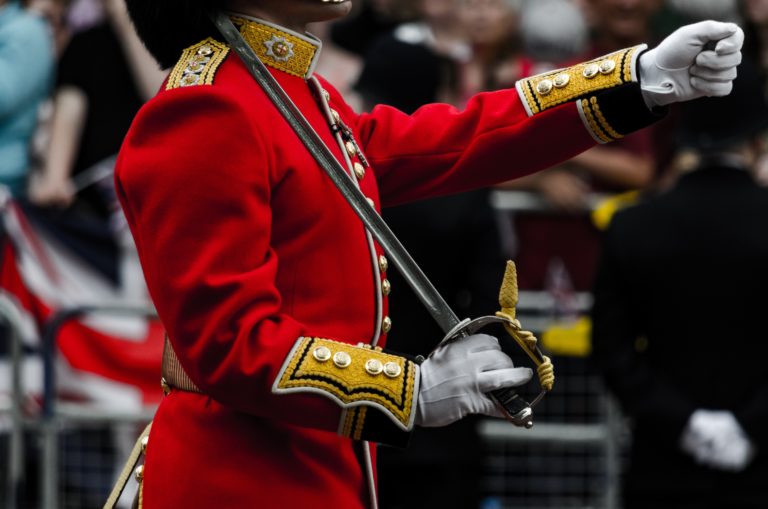(Written before the recent Defence and Security review).
‘Strong National Defences’ is one of the founding principles of the Freedom Association. It serves to protect, and is the ultimate guarantor of, our other freedoms. Post-BrExit they fit in with a ‘global Britain’ that is present across the world and as a key driver not just of British security, but influence too.
The Conservative manifesto of 2019 committed to the NATO minimum of 2% of GDP and a spending increase of 0.5% pa over inflation. A recent commitment to increase Defence spending by £16 billion over the next 4 years was very welcome. This will see Defence spending increase to about £54 Bn by 2024. New agencies will be created for Cyber, Artificial Intelligence and Satellites.
With already stretched public finances, this was a big win for Defence secretary Ben Wallace. Service Chiefs had wanted a multi-year settlement to help plan for the future.
In truth, with the National Audit Office (for the 4th year in a row) recently criticising the Forces planned equipment budget as over-stretched and unrealistic, more money is needed to avoid more cuts in capability. Tough choices will continue to be made, the Army want new armoured vehicles, the RAF those new F35 Lightnings, the Navy would like more ships……
The Treasury had wanted a smaller increase, but it is to Boris Johnsons’ credit that he has recognised the need plus the opportunity to create more jobs and boost the UKs influence. A good military will help you be taken seriously in Washington, whoever is in the White House.
President Trump was quite right to publicly call out the NATO freeloaders, those not matching the agreed 2% of GDP minimum spending. Germany being the worst (relative to the size of its economy).
If there’s one institution in Britain with a positive and can-do attitude, even (in fact, especially) under difficult conditions it’s our Armed Forces. They deliver. Readers will no doubt remember how successive Governments have called on our Forces in times of national emergency (and not just in times of war or conflict). Food and mouth disease, not enough security guards for the 2012 Olympics, floods, a dam threatening to burst, and more recently COVID vaccinations of course.
Tony Blair famously noted that when he asked the Forces to do something, the answer was always helpful and positive. When others were asked, he’d often get a list of excuses why not.
Numbers have been considerably reduced over last few decades, with many Regiments merging.
Lets consider the current strengths of our Armed Forces:
Army 79,000 (official size 82,000) full-time and 30,000 reserves
RAF and Navy are at about 32,000 strong each.
Our spending, as a % of GDP, has reduced from WW2 & post-WW2 heights to 5% in the 70s, about 4% by the end of the 80s to roughly 2.3% now. Whilst few (if any?) public services have had such a decline, to be fair we are in a different place strategically now. N.Ireland is now (mostly) at peace, when I was there we had about 10,000 troops stationed.
The UN peacekeeping commitment is Cyprus is now manned mostly by reserve troops (not a regular Battalion, as was my first posting). Gibraltar and Belize now have a small presence only, not a 600-plus strong Battalion group as was. Berlin and Hong Kong no longer have any British troops. What used to be W.Germany now has a small presence only, and numbers in Iraq and Aghanistan are much reduced.
Significant overseas bases retained by us are as follows:
£ Cyprus: UKs biggest overseas base with 2 infantry Battalions (about 600 strong each), 3000 personnel in total, much signals and intelligence gathering and an RAF base. The latter was used to launch cruise-missile raids against chemical weapons facilities in Syria.
£ Gibraltar: Navy base and a small mostly locally-recruited garrison. The smaller RAF base has no planes permanently based there and doubles up as Gib airport- with an interesting approach and landing!
£ Brunei: a Gurkha Battalion plus jungle warfare school (I tried to get on that course, but with true Forces sense-of-humour was sent climbing in Norway instead).
£ Falkland Islands: RAF base (takes flights from the UK via Ascension island), small Army presence, total about 1000 personnel strong. A Navy offshore patrol vessel is also permanently based there.
£ Estonia: forward-deployed as a NATO commitment and based around an armoured infantry Battalion. Troops are rotated thru on a 6 month posting, with vehicles there permanently. Total nearly 1000 personnel.
We still have about 1000 troops in Afghanistan and Iraq, mostly training local forces. Camp Bastion- our largest base since WW2- is now closed. In Mali (W.Africa) there are 3 large RAF Chinook helicopters and 250 troops supporting the French on anti-Jihadi operations.
£ HMS Jufair on Bahrain. Our first base ‘east of Suez’ in years. It was reactivated in 2015. Guarded by a platoon detached from Cyprus, it hosts a Navy frigate (currently HMS Montrose), 4 minesweepers and a supply ship. Crews are rotated thru every 4 months.
There are also permanently manned training facilities in Oman, Belize, Canada and Kenya. In addition to the above, there are small Navy facilities in Singapore and at Diego Garcia in the Indian Ocean.
As regards post-BrExit ‘global Britain’ I feel that the Navy is the most relevant service (lets not forget the Royal Marines are part of the Navy). The 2 big new Carriers are good news, they will be able to project power, influence and deterrence globally. We will be able to rotate them, so can virtually guarantee to have 1 always available. Frigates and Destroyers are however a bit short at only 19 in total.
HMS Argus has just returned from 8 months in the Caribbean (where we often have a ship), but is rumoured to be retired soon with no current announcement on a replacement.
Our replacement nuclear deterrent is now confirmed, and will be based again on 4 dedicated submarines. They are expected to enter service during the 2030s.
The intended global deployment this year of a Carrier battle group to the Pacific and back (COVID allowing) is to be welcomed. The Queen Elizabeth, with 2 Type 23 Frigates, 2 Type 45 Destroyers, a tanker and a supply ship will go. I gather one of the new Astute-class submarines will accompany them (however, submarine deployments are never commented on by the MoD).
This year, a Strategic Defence and Security Review is due. I am half-decently optimistic this will be positive, unlike the 2010 Review which was a shameless excuse for Defence cuts. Rumours of another big cut to the Army are being denied, and it is difficult to see Tory MPs standing for it.
The threats world-wide are certainly not getting any the less and remain unpredictable. China is particular is flexing her muscles and seeking global influence. We must continue to work with other friendly democracies. Claims of post-BrExit isolation are wide of the mark and we remain as committed to NATO as ever. Our armed forces are forces for good and long may that continue.
 Email Tim
Email Tim


